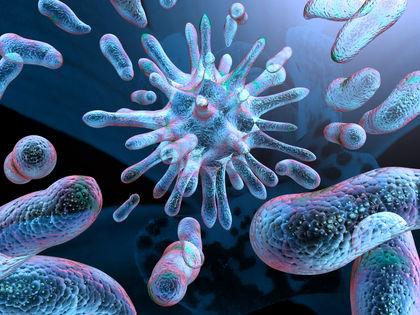Recruiting E. coli to combat hard-to-treat bacterial infections
The notorious bacteria E. coli is best known for making people sick, but scientists have reprogrammed the microbe - which also comes in harmless varieties - to make it seek out and fight other disease-causing pathogens. The researchers’ report appears in the journal ACS Synthetic Biology and describes development of this new type of E. coli that can even kill off slimy groups of bacteria called biofilms that are responsible for many hard-to-treat infections, such as those that take hold in the lungs, the bladder and on implanted medical devices.
Matthew Wook Chang and colleagues explain that biofilm infections are difficult to treat because the bacteria hide away under a protective barrier of sugars, DNA and proteins. That shield makes them very resistant to conventional therapies. In addition, overuse of antibiotics in medicine and agriculture also have made some bacteria, such as MRSA, shrug off most known treatments, making at least 2 million Americans sick every year. This growing public health threat has motivated scientists to look for new antibiotics and alternative treatments to beat infections. In the past, researchers made bacteria that fight off other microbes, but they had limitations. Chang’s team addressed those limitations by making a new kind of bacterial “gun-for-hire” that can sense an infection, swim toward it and kill off the disease-causing microbes.
They reprogrammed E. coli to sense Pseudomonas aeruginosa - a bacteria that can form biofilms and causes hospital-acquired infections in the lungs and the gut. The new E. coli then swims directly toward P. aeruginosa and launches an attack with an antimicrobial peptide and an enzyme that breaks down biofilms. Though the researchers successfully tested their engineered microbe on P. aeruginosa, they say that their engineering strategy could be used to combat other pathogens as well.
The authors acknowledge funding from the National Medical Research Council of Singapore and the U.S. Defense Threat Reduction Agency.
The American Chemical Society is a nonprofit organization chartered by the U.S. Congress. With more than 163,000 members, ACS is the world’s largest scientific society and a global leader in providing access to chemistry-related research through its multiple databases, peer-reviewed journals and scientific conferences. Its main offices are in Washington, D.C., and Columbus, Ohio.
 To automatically receive news releases from the American Chemical Society, contact .(JavaScript must be enabled to view this email address).
To automatically receive news releases from the American Chemical Society, contact .(JavaScript must be enabled to view this email address).
###
Michael Bernstein
.(JavaScript must be enabled to view this email address)
202-872-6042
American Chemical Society